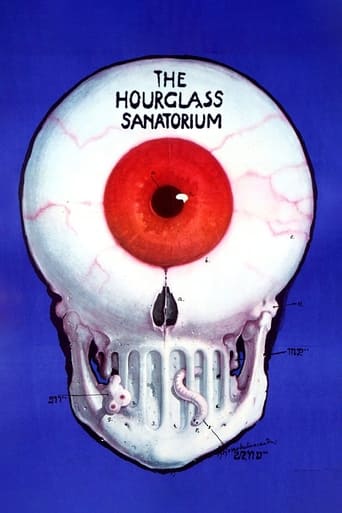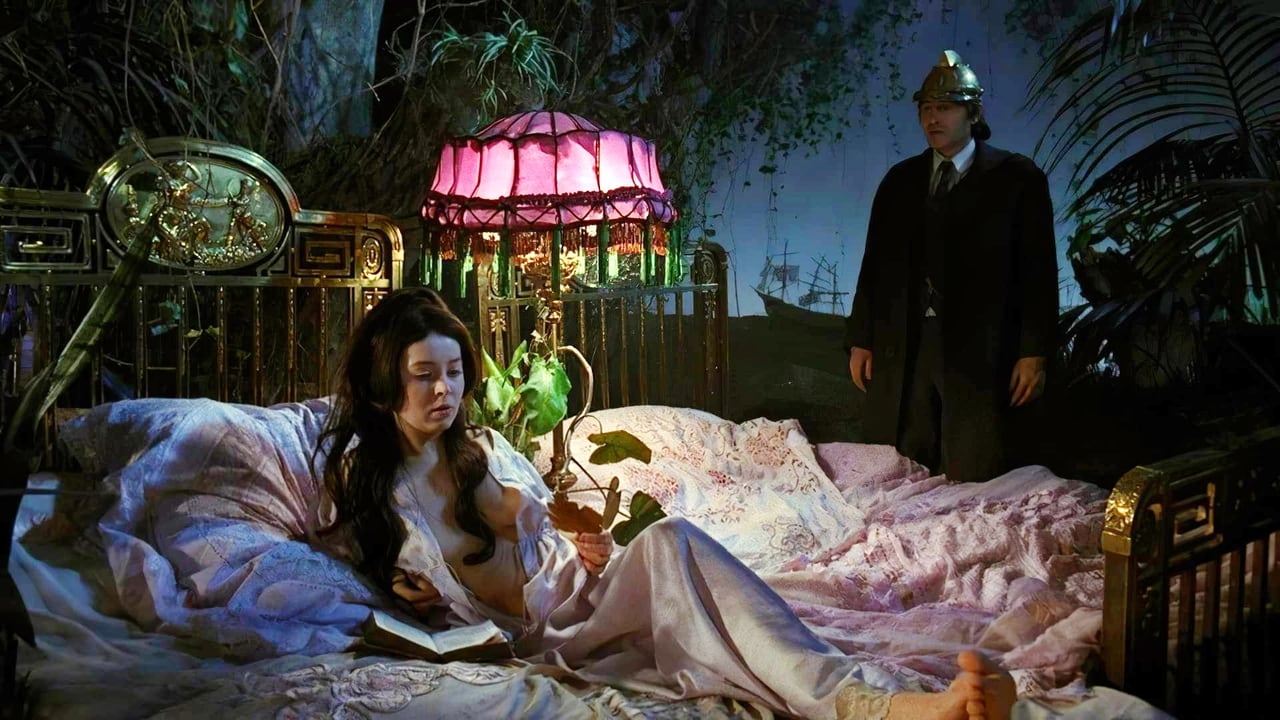HEFILM
The director, as he did with Sargosso Manuscript, seems more interested in trying for comic surreal than drama/horror or psychological depth.This is not to say that Surrealism doesn't work when it has a comic edge, but that this director doesn't do surreal comedy that well, while when he gets serious, and visual he's so good you just wish he'd really stick with that.As in the previous film the more serious aspects are the best elements, this film is more impressive visually but a good part of that is that it's in color. I admit the first time I saw this film I thought quite highly of it and in seeing it again I thought it would get even better as I'd understand more of how the pieces came together and what they meant. But after a long gap between viewings the film almost fell apart for me. Despite a powerful wrap up sequence.After a strong start the script just doesn't come together or feel like it's rushing into nightmare or meaning, it plods along. Some of the episodes just seem pointless--especially the soldiers near the boat and the manikin sequence. These set pieces aren't really that funny and go on forever. And most of the manikins are obviously people trying to stand still so you end up watching to see them breath or move when you should be reading subtitles. Another thing about the attempts at antic bizarre comedy is that these are the talkiest sections of the film, really almost like a stage play in these spots. These have nothing to do with the core story which is the man and his father sort of loose in time. At one point the son talking to his father says these various episodes are "hard to discern, the meaning." He's got that right!The Jewish seuqences and elements are interesting--especially coming from a Communist country at the time it was made is praise worthy.And yes indeed Blade Runner owes this film a debt.But aside from the stunning sets and transitions you just don't know what is going on some of the time and with a film that is a bit over 2 hours in length you just stop caring. You can still sit there and marvel at the images, but this is not enough. It's almost like footage cut out of a great movie because it didn't advance the story.The film also tends to get really talky in spots. The best moments and sequences are silent. The whole thing feels like a missed opportunity despite some great silent sequences and a great core idea, it doesn't hold you or hold together for the whole length. Opening and closing sequences are the best though there are scattered images and an excellent, if sparsely placed, music score. For the record there is also a fair amount of female nudity involving a brothel, though this too seems a bit forced after awhile and is played with a leering comic quality never with any erotic intent.Though it has some great dream images it fails ultimately to convince us there is a dream logic at work here. All in all an almost fascinating film that becomes frustrating instead. Have to fault the script as all the elements on a production level were there ready to make a great film, but as is so often the case you need a great script to make a great movie no matter what genre.One final note I have read THE SARGOSSA MANUSCRIPT, I have not read the source material to this film, so I make an assumption about the director's interest in comedic twists rather than more serious horrific ones based on what he did with the first film and book.
JustApt
I didn't even know about existence of this gem, I came across it by chance. Long time ago I've read short story by Polish writer Bruno Schulz named Sanatorium under the Clepsydra and appreciated it greatly so I was lucky to find this excellent film adaptation. A son goes to visit his ill father in some mysterious sanatorium – in reality his father died but in this bizarre sickbay he continues to live due to some shift of time backward. In fact all the times there are merged and he meets himself younger and sees his old dead mother and takes part in all kinds of affairs occurring someplace between nightmare and reverie. The Hour-Glass Sanatorium perfectly opposed the passage of time as if this film itself has been placed into some timeless capsule.
Alex Klotz
Based on a story collection of the same name by Bruno Schulz, who was shot by the Gestapo in 1942, this movie is one of the rare cases of a congenial adaptation of modern fantastic literature. It's a demanding movie and it is impossible to extract something like a plot line. There are various changes in between time and space, but once you get involved with the narrative, they seem perfectly logical. Also, there are many highly impressive sequences and settings - i have read somewhere (i can't give no reference right now, sorry) that it was the most expensive movie ever made in Poland, and maybe it still is. It certainly is one of the best. And, by the way, there is one scene with a room stuffed full of mannequins that looks like an inspiration to a similar sequence in Ridley Scott's "Blade Runner", which is a great movie of its kind, but was made some years later and did much better at the box office.
galensaysyes
This is a film that will either absorb or exasperate, depending on one's temper. It mostly exasperated me, but many of its images have stayed with me, and I think viewers who have the patience for, say, Strindberg's "Dream Play" will enjoy its corkscrew narrative. Many may be amused, as I was, by the highly shadowed, highly colored Gothic decor but may have difficulty, as I did, staying the course. The synopsis above is slightly misleading on one count: The old man in the sanatorium is or would be dead in the real world, but his death would be financially inconvenient to the family and so his son is paying to have him kept in the enclosed world of the sanatorium, where time moves more slowly and he can stay alive indefinitely. The film begins like a horror movie, with the protagonist taking an eerily populated train to the ruined sanatorium. But once he's taken care of his business there both he and the story wander into a series of absurdist-picaresque adventures, set in scenes from his memory and imagination (apparently: some are quasi-historical, and his father appears in one of them as a young man). They grow and flower and intertwine with one another as they would in a dream or a reverie, until at last the protagonist arrives back where he started and finds out his fate after all. That seemed arbitrary to me; and why the place should have led him where it did, literally or symbolically, I don't really know; and to my taste the film is so boldly stated as to be a little cheap. But it still has a way of floating around inside the head for a long time after. And if enough people were interested enough by it, the process of identifying and interpreting its cornucopia of allusions and symbols could fuel a semester's worth of late-night discussions.


 AD
AD

